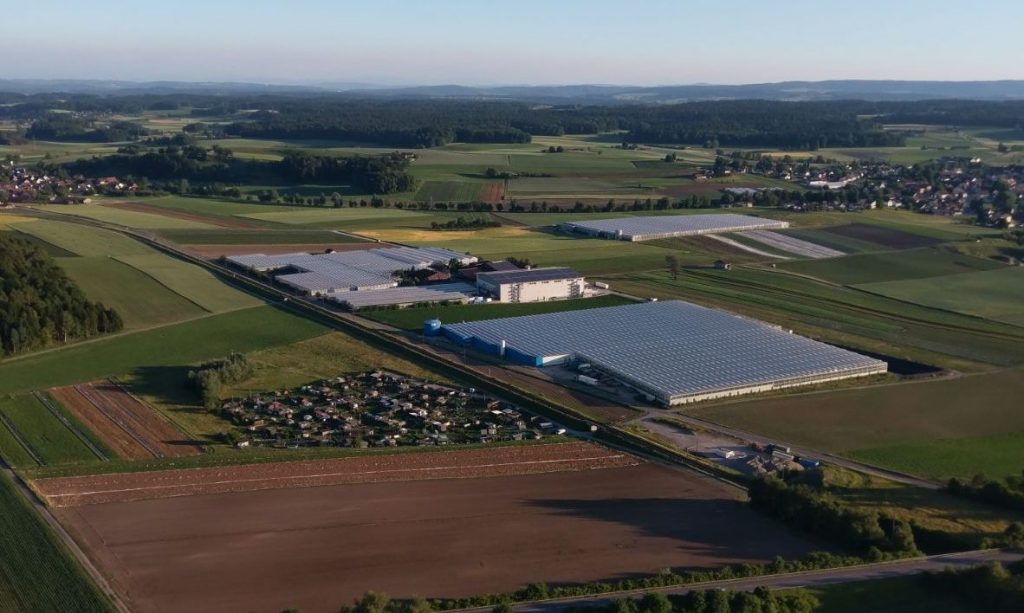Pumps restarted for geothermal heating of greenhouse operations in Schlattingen, Switzerland
A vegetable farmer in Schlatting, Switzerland has restarted the utilisation of two geothermal wells drilled for heating of greenhouse operations after an involuntary break.
As reported last week, Hansjörg Grob Vegetable Agriculture, a large vegetable production company with extensive greenhouses in Schlattingen in Switzerland, has restarted the pumps for its geothermal heating system. The project now again derives water with a temperature of 60°C, after a two year involuntary break of two years.
In February 2016, the company had to stop utilise its geothermal well, as oil-contaminated water reached the river Rhine. For a long time it was assumed that sabotage was responsible. But early 2018, it was discovered that natural oil from the subsurface was the reason for it.
At the beginning of the year, it was announced that attempts at pumping are to restart, which now has happened. It will take about one year to provide the company with sufficient data in order to obtain the concession for a permanent operation of the geothermal system from the canton next year.
The company wants to use the thermal water to heat the greenhouses and in return to refrain having to use oil. The experiment will show how the operation affects the thermal water. The cooled and treated water should be discharged into the Rhine “in compliance with all legal requirements,” according to a press release from the company. A closed derivation and “various safety and protective measures have been realized”. These measures are a consequence of the accident two years ago.
Before the geothermal well was drilled, the greenhouse company’s operations were heated with natural gas and crude oil. The total energy consumption of the company is about 20 GWh per year. This corresponds to around 2 million litres of heating oil. This energy requirement causes high CO 2 emissions, about 5t per year. The result of a feasibility study on the use of geothermal energy showed that water-bearing layers are to be expected and that, given a sufficiently high yield, the entire heat requirement of the agricultural production plant can be covered by heat from the underground. This can be used to replace fossil fuels. Because the project is of great importance from an energy policy perspective, the canton of Thurgau supported the geothermal project with a risk guarantee. If successful, the funds will be returned to the canton.
The vegetable farmer Hansjörg Grob was looking for hot water for five years. The geothermal project in Schlattingen was started in December 2010, when the drilling work began. In March 2015, the two deep wells were completed. At a depth of 1,500 to 2,000 meters, there is water at a temperature of 65 degrees Celsius, which Grob wants to use to heat greenhouses and thus replace natural gas or oil. The cost of drilling is CHF3.5 million (around $3.6million). In the summer of 2010, the canton of Thurgau had committed itself by major council decision to provide CHF 2 million as a risk guarantee. This, after the canton published a study in late 2009, which showed the potential of geothermal energy in Thurgau. Grob’s project should be supported as a pilot project for this renewable energy. The National Cooperative for the Storage of Radioactive Waste (Nagra) also contributed to the drilling with just under CHF 1 million. It hopes for geological findings, such as for the repository discussed in the nearby Zürcher Weinland. In the spring of 2015 Grob started the trial operation to use the thermal water as heating energy. In May 2015, there was a first oil spills in the local Geisslibach. The trial operation was interrupted and should have resumed in February 2016, where it came to renewed pollution.
Sources: Geothermie Thurgau, Tagblatt


















